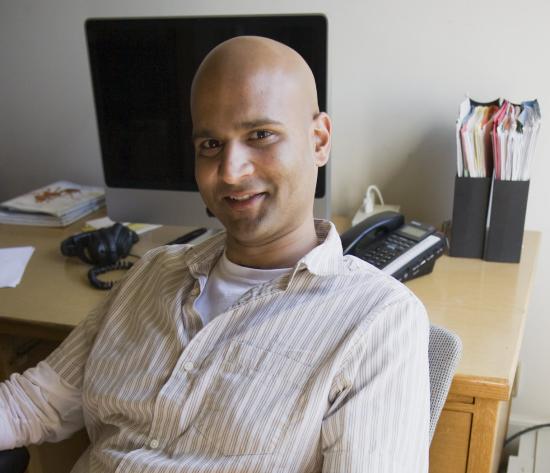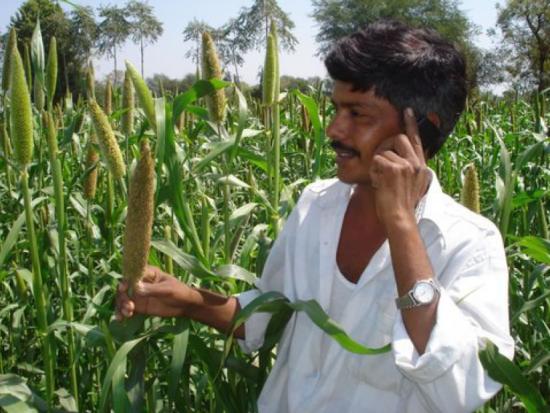School of Information assistant professor Tapan Parikh has been honored with a “Best Paper” award at the CHI 2010 conference in Atlanta, Georgia.
Parikh's paper, "Avaaj Otalo — A Field Study of an Interactive Voice Forum for Small Farmers in Rural India," was coauthored by Neil Patel of Stanford University, Anupam Jain of IBM India Research Laboratory, India, Paresh Dave of the Development Support Center, India, and I School alumna Deepti Chittamuru (MIMS 2009). The paper presents the usage patterns and social dynamics that emerged from their research and discusses implications of the findings on design of voice social media for developing regions.
The team's research addresses the challenges of small-scale farmers in rural India, including fierce global competition, increasing costs of farm inputs, water shortages, and new diseases and pests brought on by a changing climate. To deal with these challenges, information has become critical for farming operations: farmers need market information, timely technical advice, and alerts on new and improved techniques.
The Internet is out of reach for much of rural India. Even if Internet-connected PCs were available, widespread usage is constrained by language and literacy barriers. But while computers are unaffordable or unfamiliar to rural communities, mobile phones are not.
Avaaj Otalo ("voice-based community forum") provides relevant and timely agricultural information over the phone. By dialing a phone number and navigating through simple audio prompts, farmers can record questions, review and respond to others, or access content published by agricultural experts and institutions.
Avaaj Otalo is currently a live pilot deployment with 50 farmers throughout Gujarat, India. Based on the enthusiastic response, the application will soon be launched to serve over 500,000 farmers across the state.
CHI 2010, the 28th annual CHI conference, is being held April 10–15, 2010, in Atlanta, Georgia, and is sponsored by ACM SIGCHI (the ACM Special Interest Group on Computer-Human Interaction). The “Best of CHI” awards honor exceptional submissions to SIGCHI sponsored conferences. Parikh's paper was one of only eleven “Best Paper” award winners at this year's conference — less than 1% of conference submissions.











